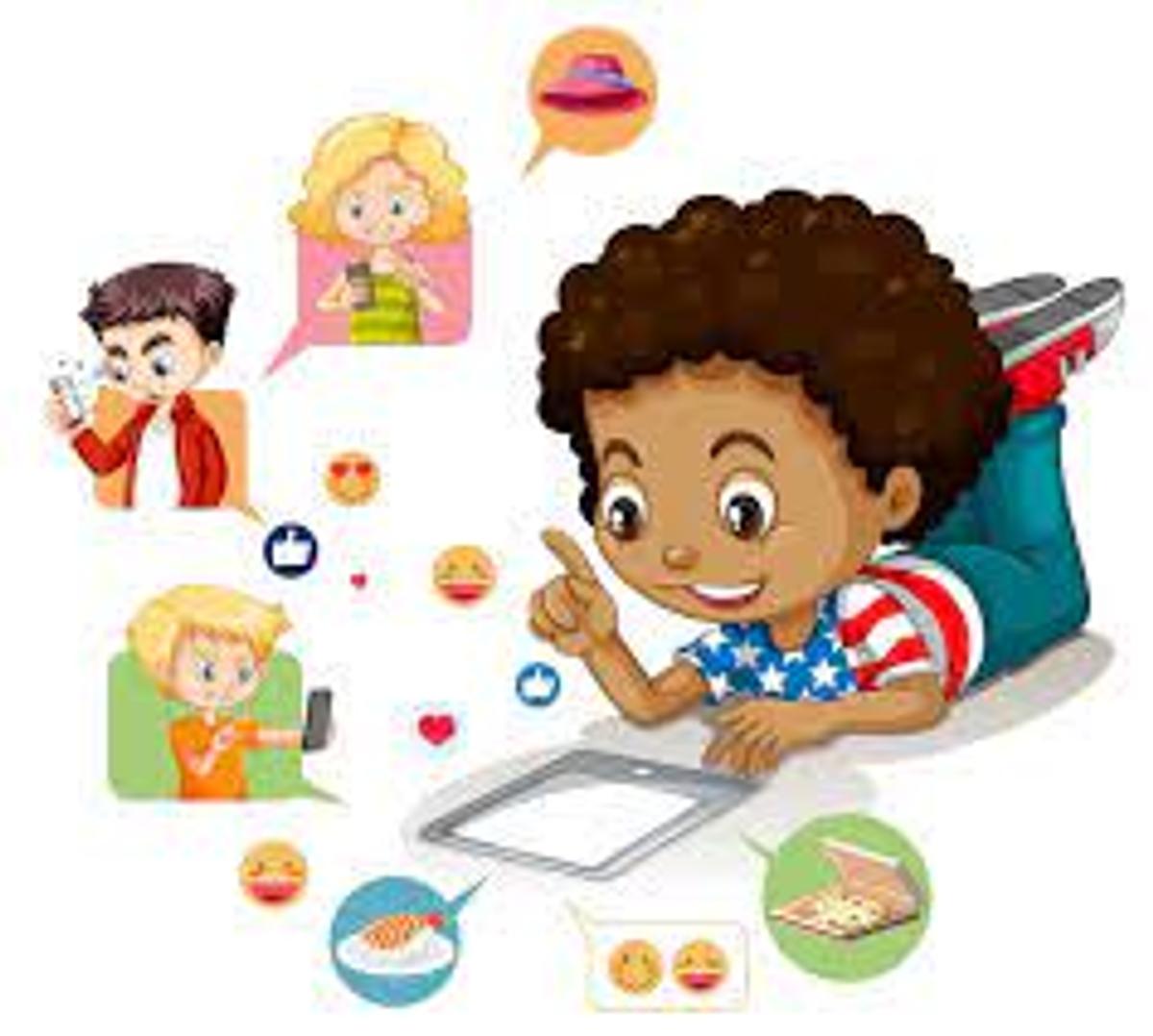Wellbeing

Social Media and Children:
Most of us use some form of social media and have a profile on a social networking site. Many visit these sites every day. Children are no exception to this rule. The age of those accessing social media is getting younger and younger, which means parents need to be aware of the positives and negatives of our children accessing this at home.
There are plenty of good things about social media — but also many risks and things children and preteens should avoid. They don't always make good choices when they post something to a site, and this can lead to problems with friendships and at times their safety.
To help them find the balance, it's important to talk with your children about how to use social media wisely.
Social media can help children:
- stay connected with friends and family
- volunteer or get involved with a campaign, nonprofit, or charity
- enhance their creativity by sharing ideas, music, and art
- meet and interact with others who share similar interests
- communicate with educators and fellow students
- access health information
- learn about current events
The flipside is that social media can be a hub for potentially harmful or questionable activities.
Cyberbullying
Through cyberbullying, children can be teased or harassed online. In fact, cyberbullying is considered the most common online risk for children and preteens, and is linked to depression, loneliness, and even suicide in both the victims and the bullies.
Privacy & Safety
Children also should know about privacy and safety. Without meaning to, they can share more online than they should. Many children post photos of themselves online or use their real names on their profiles. They also might reveal their birthdates and interests, or post their school name and the town where they live.
Children also can face the possibility of a physical encounter with the wrong person. Many newer apps automatically reveal the poster's location when they're used. This can tell anyone exactly where to find the person using the app. Although rare, this poses a real risk for children’s safety as they may not not the real person they are communicating with behind the screen.
Risks to Their Reputation
Photos, videos, and comments made online usually can't be taken back after they're sent or posted. Even when a kid thinks something has been deleted, it can be impossible to completely erase it from the Internet.
Mental Health Effects
Spending too much time on social media can have negative mental health effects. Sometimes it’s not just how much time children spend on social media, but how it's used that can affect their mood. For example, seeing how many "friends" others have and the pictures of them having fun can make children feel bad about themselves or feel like they don't measure up to their peers. Also, children who lurk passively in the background of a chat are often unhappier than those who actively post and send messages to friends.
Inappropriate Content
Children may see online ads or content that are inappropriate for their age. This is especially true for children who lie about their age to get access to certain social media sites.
Time Drain
Children sometimes spend so much time on social media that they don’t have enough hours in the day for doing homework, reading, exercising, sleeping, spending time with loved ones, or enjoying the outdoors.
What Can Parents Do?
It's important to be aware of what your children do online. But snooping can alienate them and damage the trust you've built together. The key is to stay involved in a way that makes your children understand that you respect their privacy but want to make sure they're safe.
Tell your children that it's important to:
- Be nice. Mean behaviour is not OK. Make it clear that you expect your children to treat others with respect, and to never post hurtful or embarrassing messages. And ask them to always tell you about any harassing or bullying messages that others post.
- Think twice before hitting "enter/send". Remind children that what they post can be used against them. For example, letting the world know that you're off on vacation or posting your home address gives would-be robbers a chance to strike. Children also should avoid posting specific locations of parties or events, as well as phone numbers.
- Follow the "WWGS?" (What Would Grandma Say?) rule. Teach children not to share anything on social media that they wouldn't want their teachers, future friends, future bosses — and yes, grandma — to see.
- Use privacy settings. Privacy settings are important. Go through them together to make sure your children understand each one. Also, explain that passwords are there to protect them against things like identity theft. They should never share them with anyone, even a best friend.
- Don't "friend" strangers. "If you don't know them, don't be friends with them online." This is a plain, simple — and safe — rule of thumb. Let them know that children who follow friends are generally happier than those who follow strangers.
- Leave problems with peers at the school gate. Encourage your child/ren if they have a problem at school to seek adult support to solve issues before leaving for the day. Social media is not the platform for solving problems with peers.
And don't forget: Setting a good example through your own virtual behaviour can go a long way toward helping your children use social media safely.
Donna Allen



